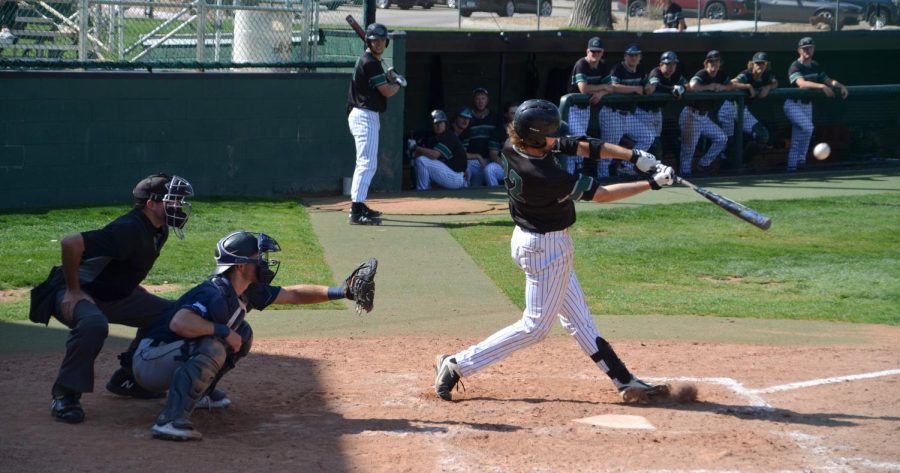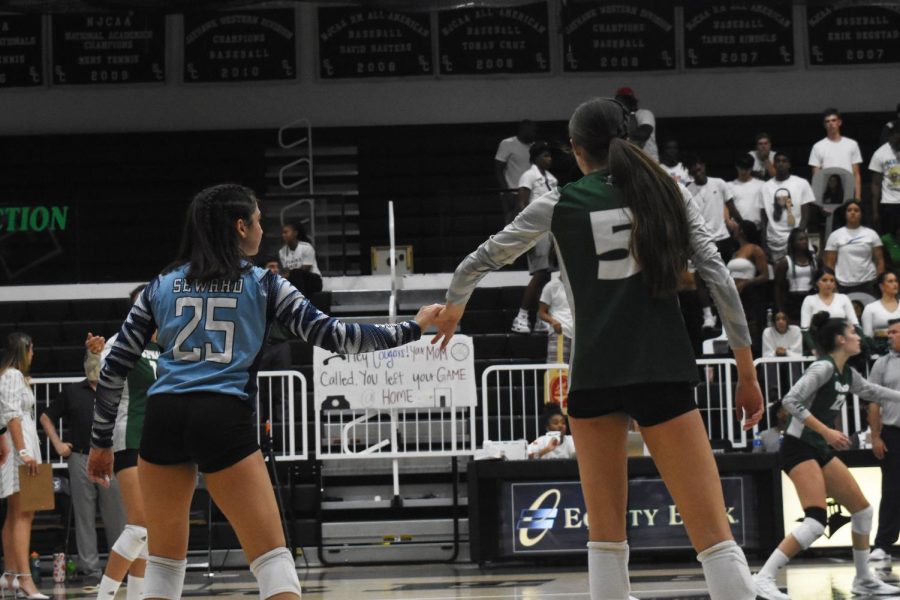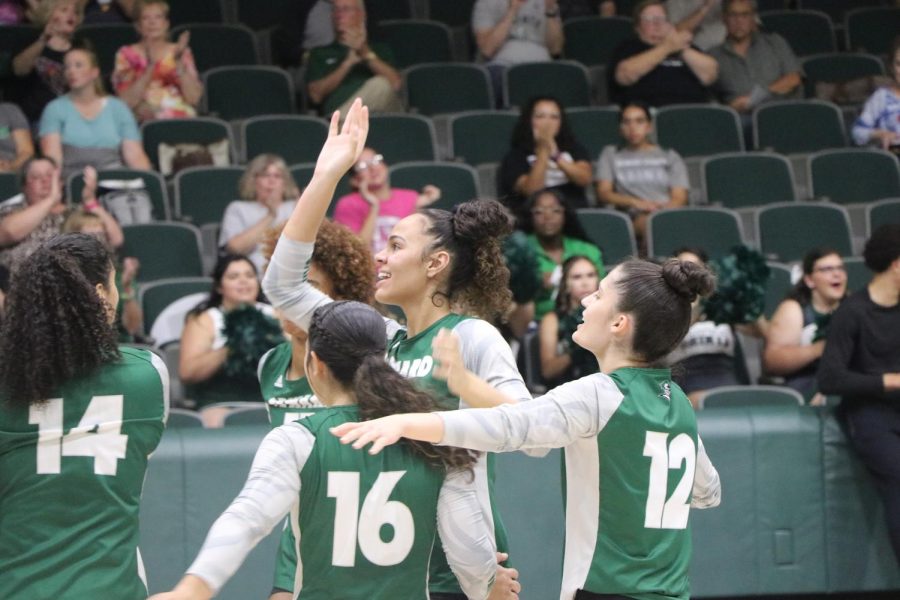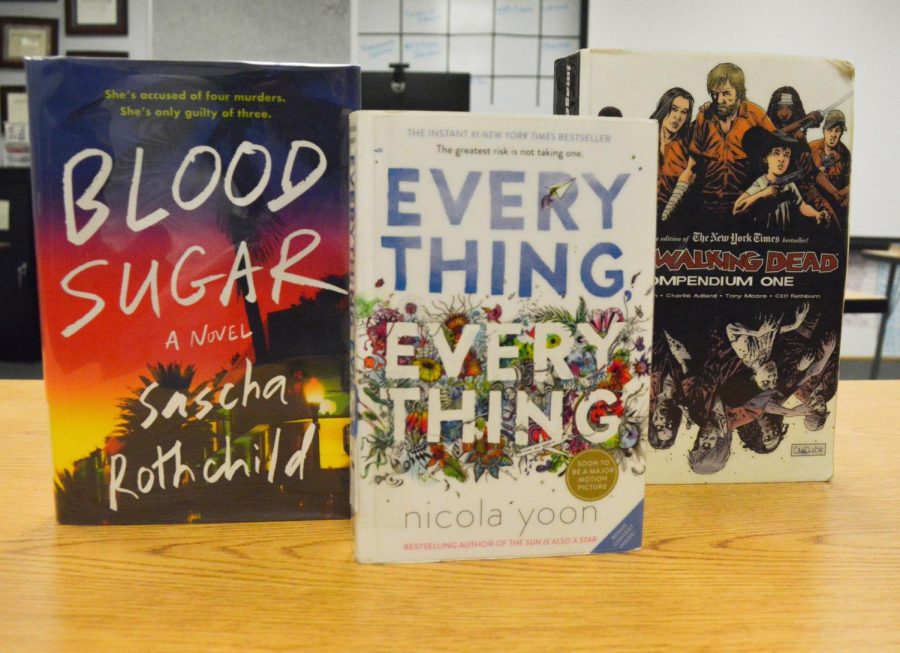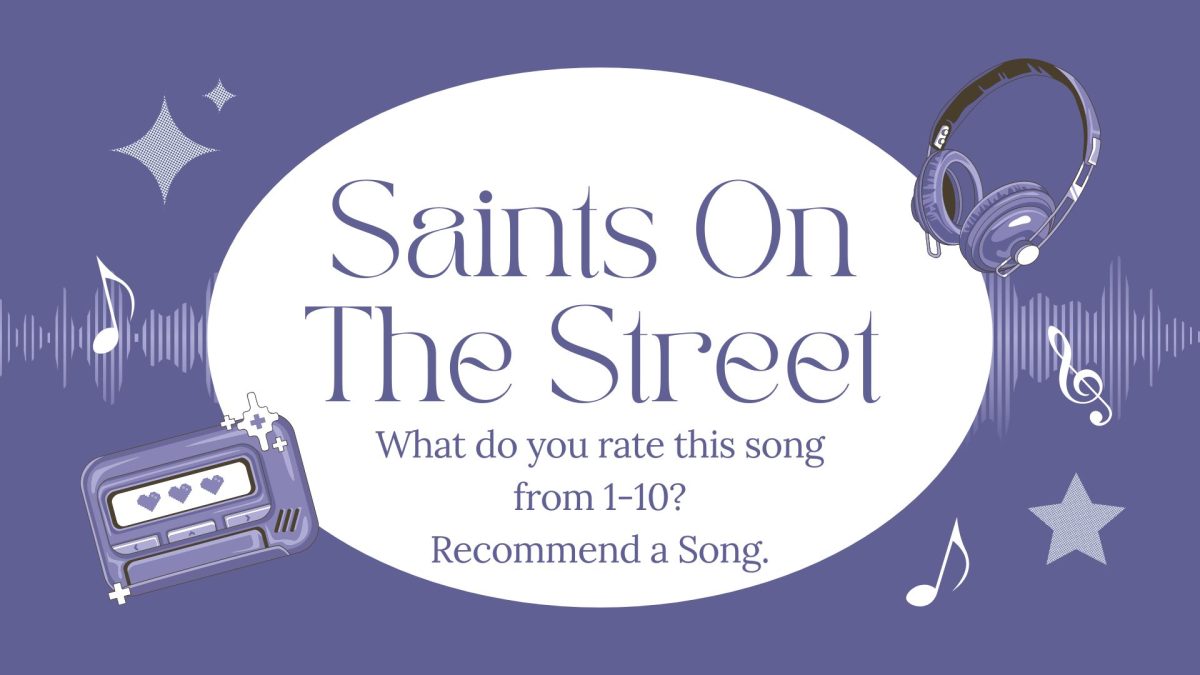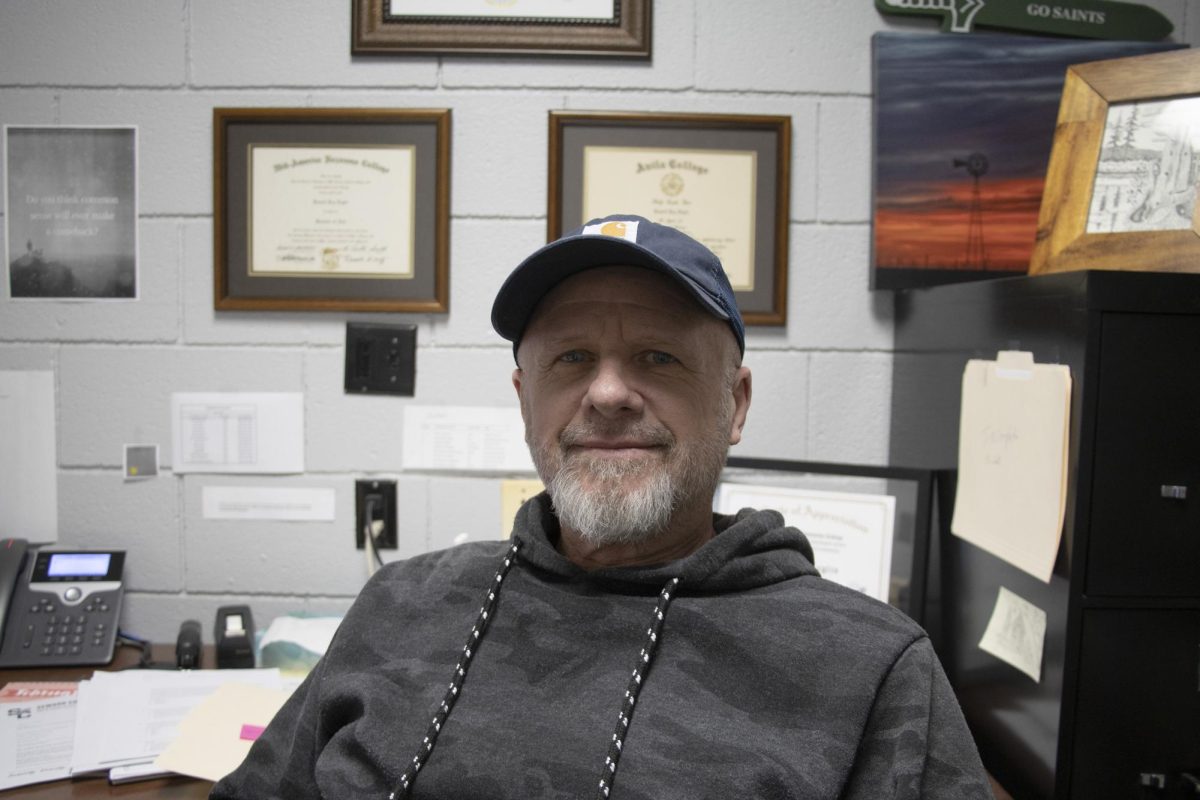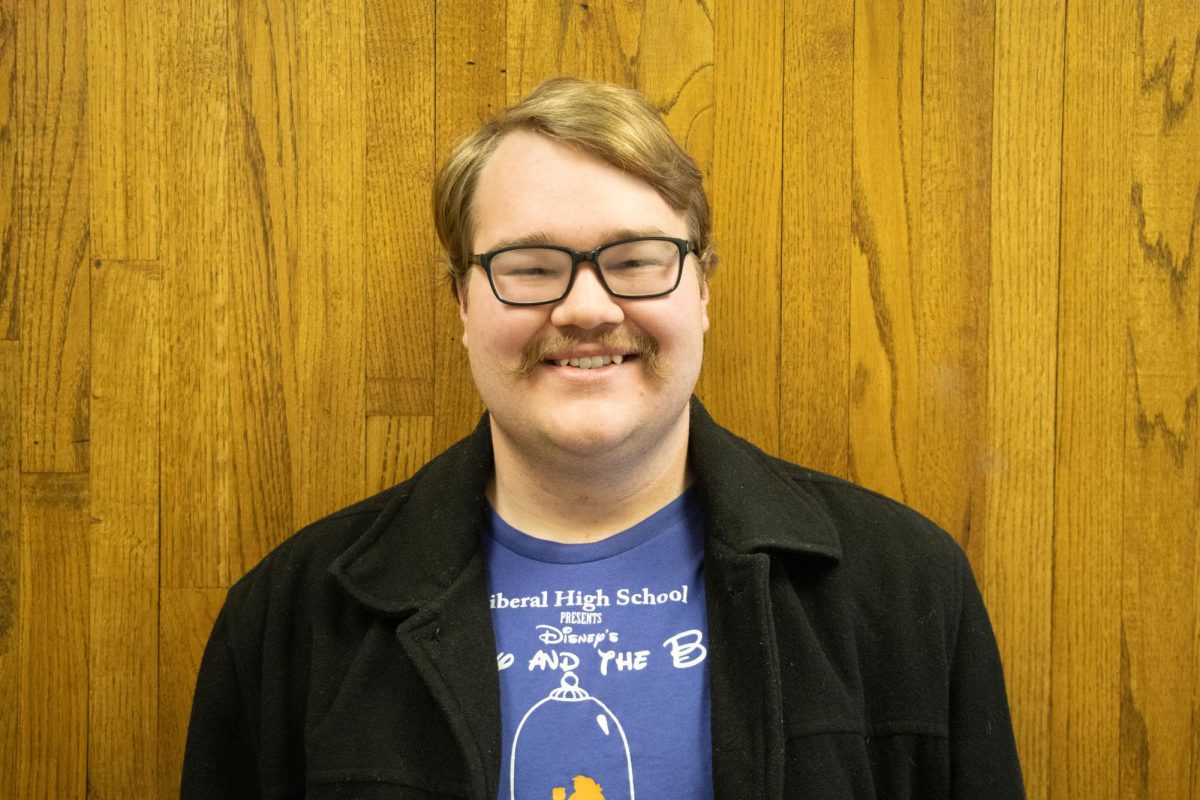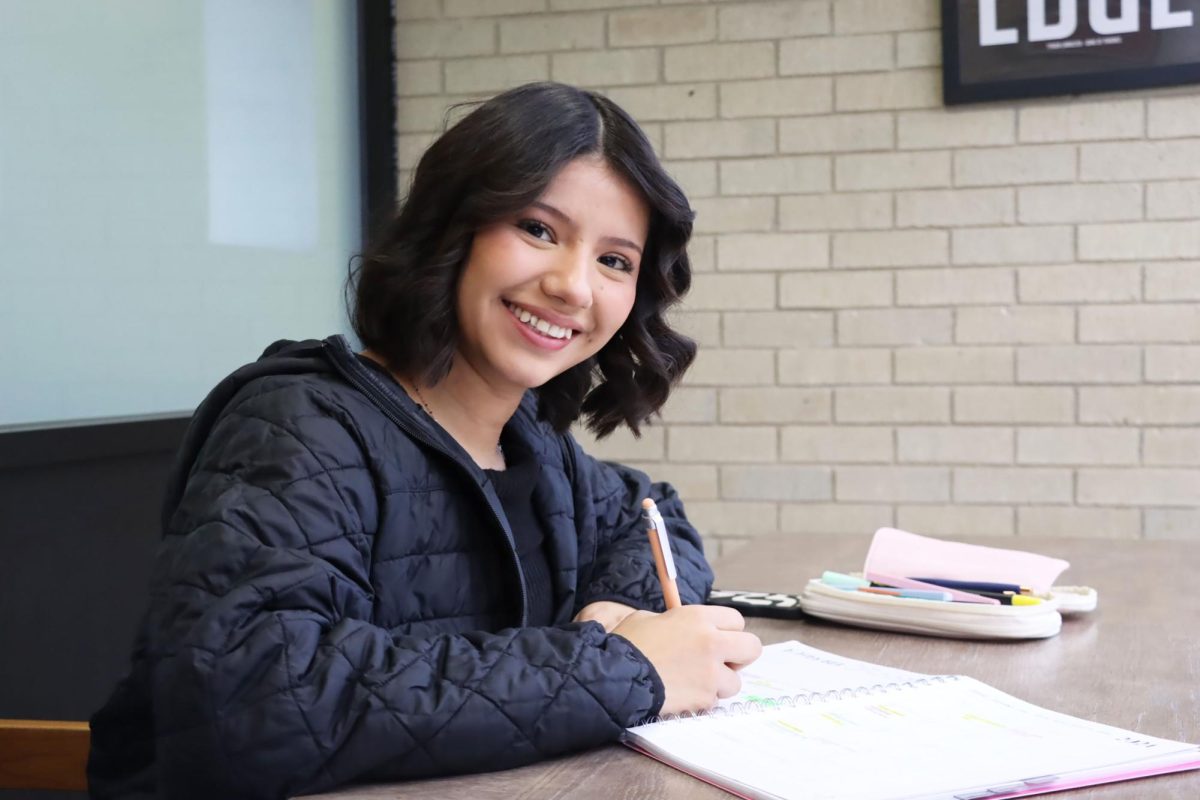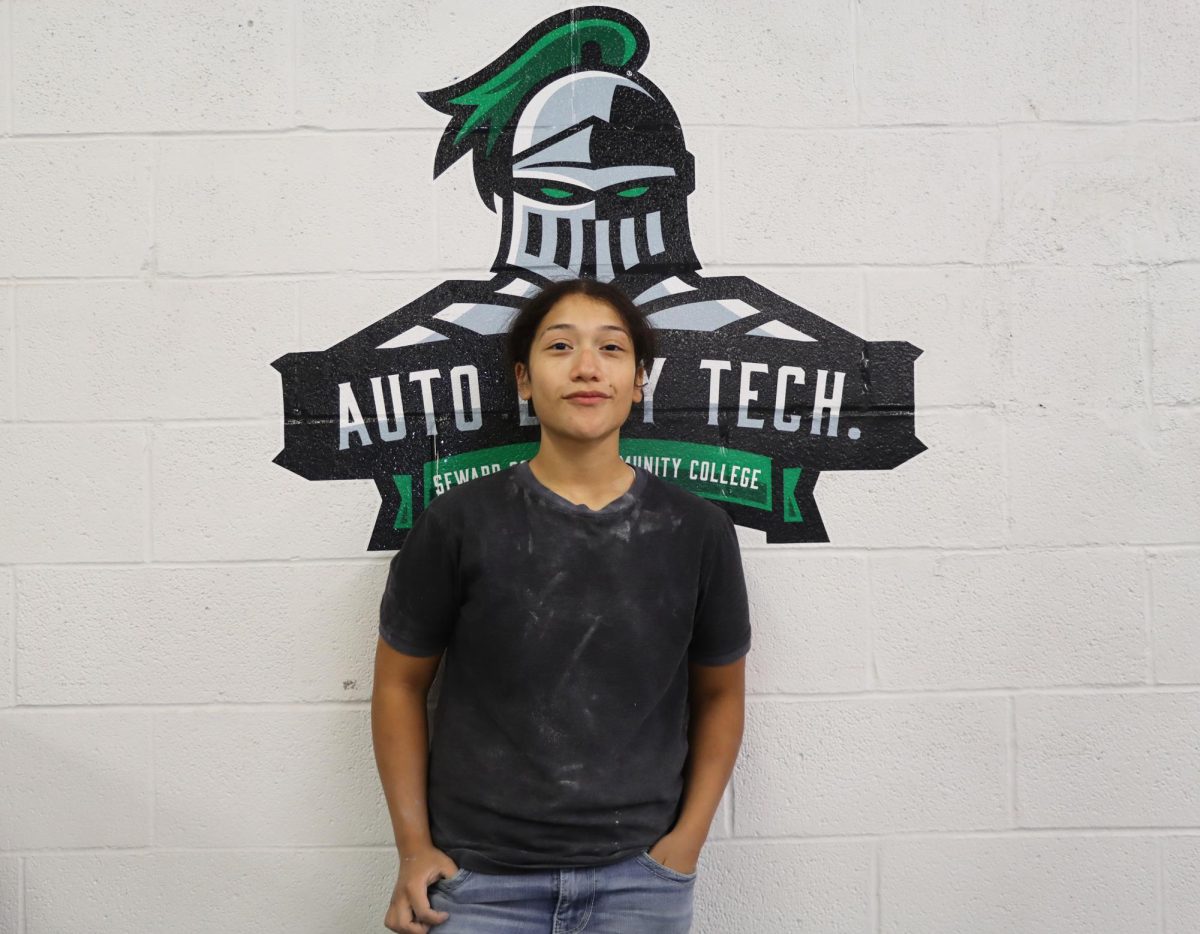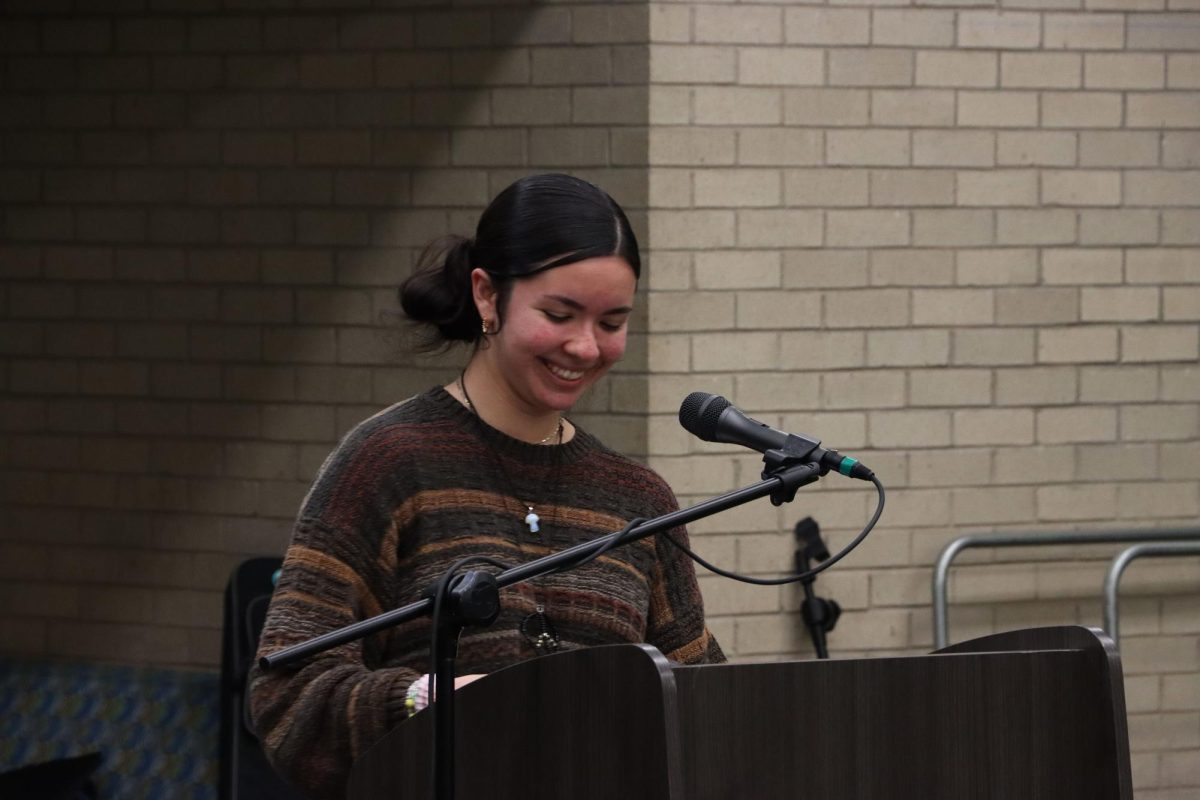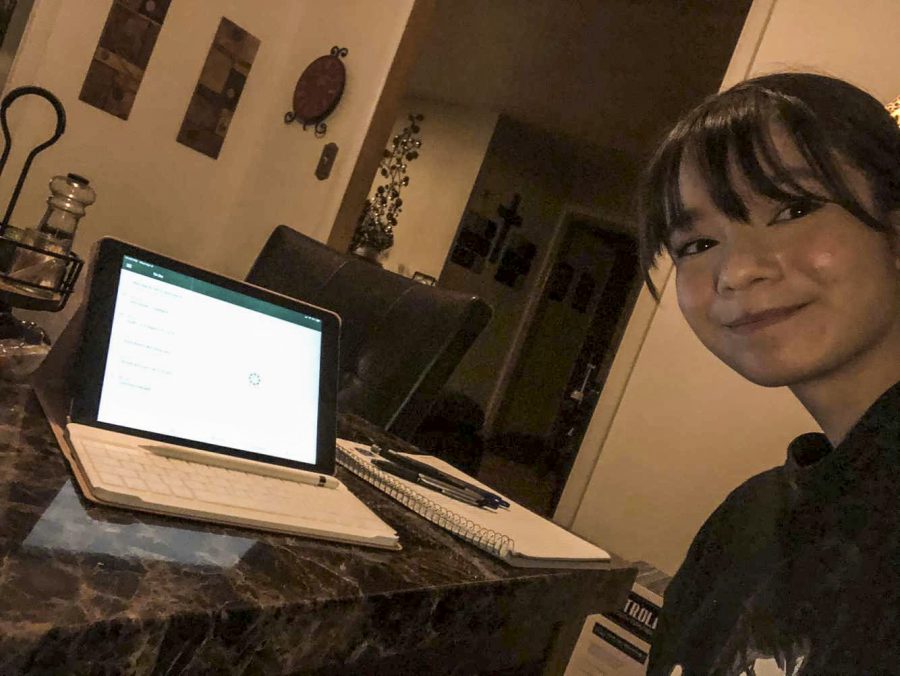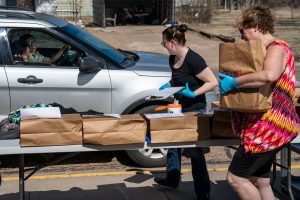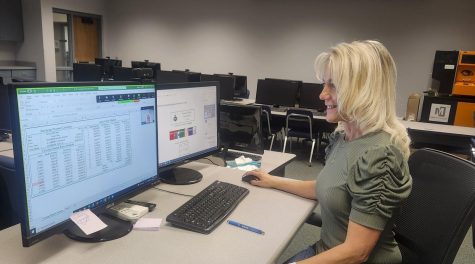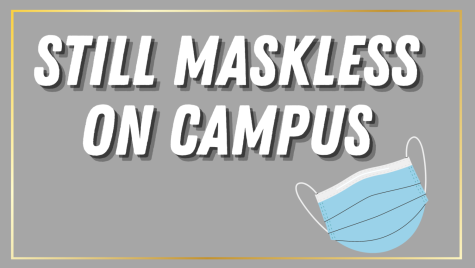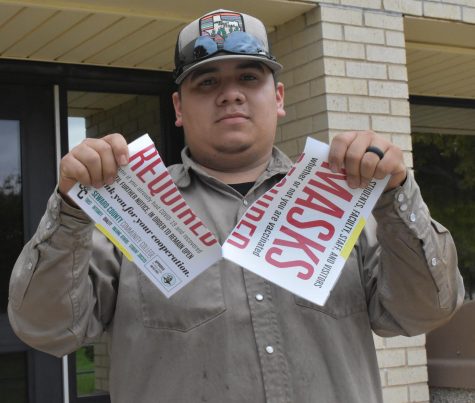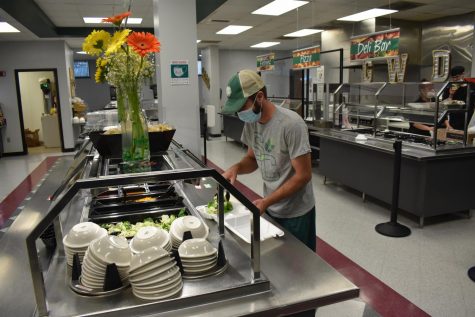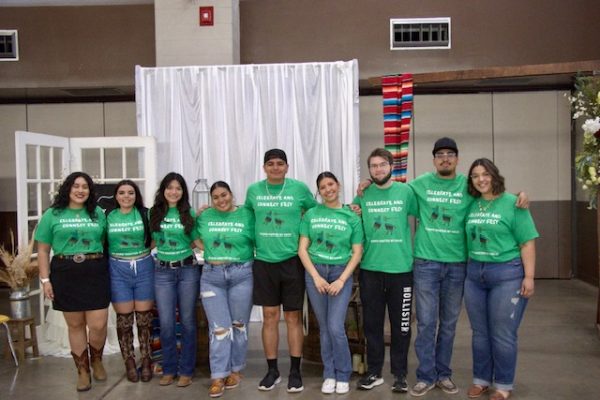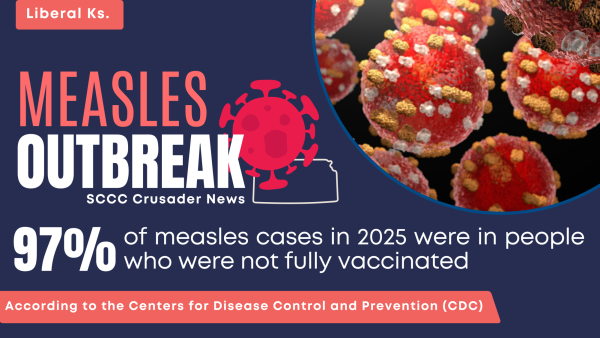Long distance learning changes lives of students
Destiny Duran, Psychology major, learns from her family’s dinner table. Duran is a sophomore planning to attend University of Kansas in the fall. She said, “Online school makes me think homework is optional.”
It’s been three weeks since students received an email announcing that classes were going online as a result of the spread of COVID-19. Initially, this different class style shocked students but after everything settled down, some have mixed feelings about the change.
Some students such as Marcos Popa, freshman heating, ventilation and air conditioning (HVAC) major, are enjoying the online experience.
“I realized that when I would be in class I would just skim over the content looking for answers just to pass a test the next day. But now that I’m stuck at home, I’ve been able to focus on what the content really means without such a small time limit,” Popa said.
However, for others, online classes have been difficult to adjust to.
“I’m having a really hard time adjusting to an online setting with my math class because it’s a subject I really struggle with. It’s not the same as getting face-to-face lectures,” Aritzza Rodriguez, sophomore dental hygiene major, said.
Another student who is heavily affected by losing face-to-face contact is Oleksandra Ivanova. She is a Ukrainian ESL student at the Colvin Adult Learning Center.
“Learning a language online is very difficult. Personally, I need contact with the teacher so that at any moment I can ask the teacher what I do not understand,” Ivanova said.
Other students just do not feel they are getting enough out of online classes like they would be getting on campus.
“I honestly feel annoyed with long distance learning,” Manuel Villalobos, sophomore music major, said. “It feels like I’m not getting everything out of it as I would be if I was there in person, especially with my saxophone lessons.”
“I’m not really learning anything and I’m very confused about what’s going on in some of my classes,” Noah Horinek, sophomore drafting and design major, added.
Some students are even needing to reteach themselves content just to get by.
“In a way, I feel like I have to lecture myself when I’m doing online classes. That’s why I like face-to-face, because to me I learn more that way rather than having to look up extra videos to try and teach myself the units,” Rodriguz said.
Popa also feels he needs to watch videos to fully understand the material, but he says it is not as effective as having an in-person instructor.
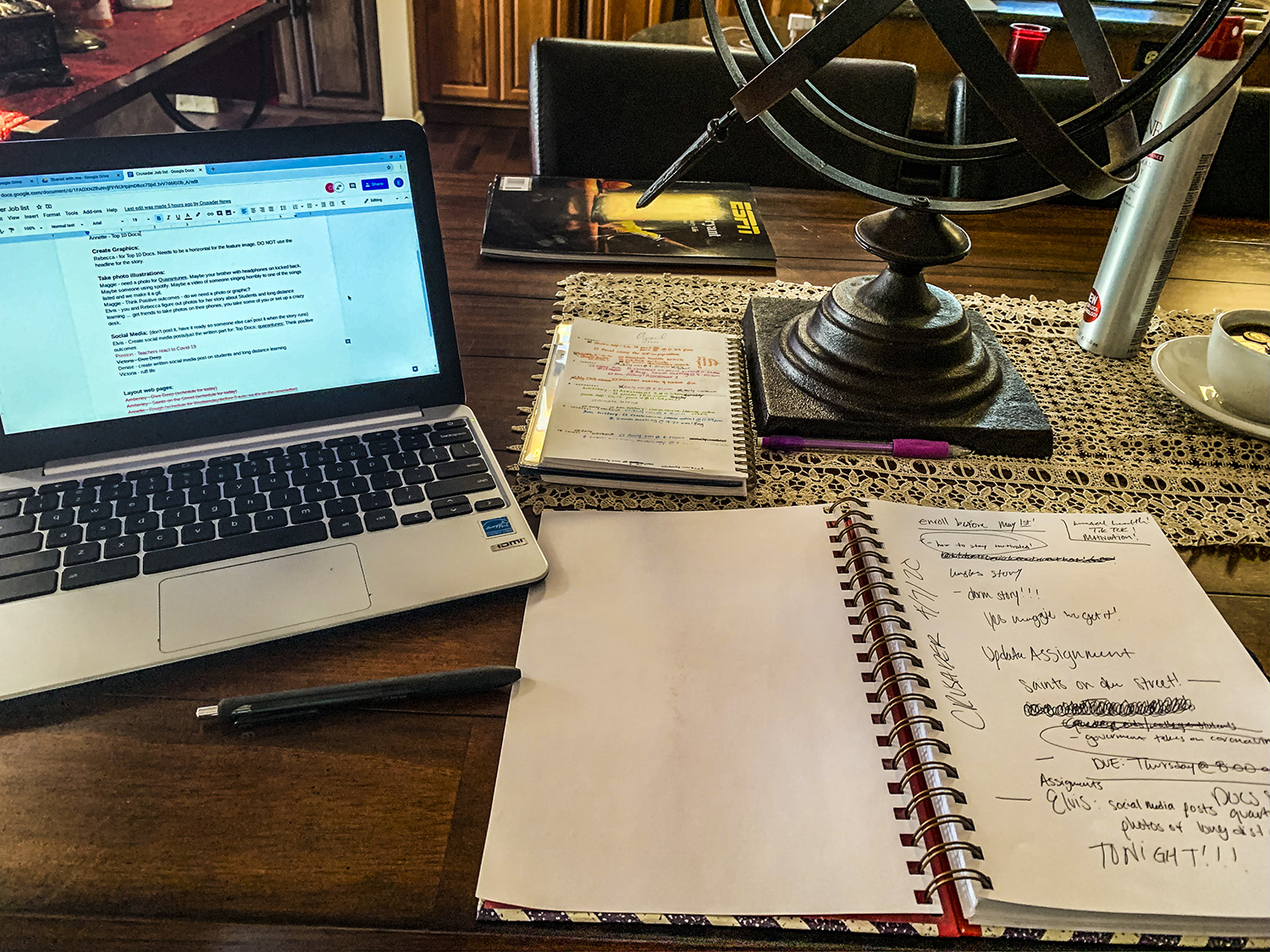
Elvis Polvon, freshman mass communications major, does all his work from the dining table in his parents’ home. “Sometimes it’s hard because I get distracted so easily, but I heavily rely on my planner,” he said.
Some students feel the switch to long distance learning has been unorganized and very sudden.
“As a concurrent student, I feel like I have double the stress. Some teachers aren’t very informative about stuff and it’s confusing … But the high school is definitely causing me more stress than the college,” Liberal High School concurrent student Caitlin Gilmore said.
However, even though changing to online classes has been hard on everyone, Popa believes teachers and staff are doing their best to help students succeed in their classes.
Due to the loss of in-person lectures and hands-on learning, some students worry they will need to retake some courses.
“I’m debating whether or not to drop my math class because I don’t think I’ll be able to pass it while things are like this, it’s hard to focus at home on a subject that I struggle so much on,” Rodriguez said.
Chantel Briones, a freshman nursing major, also worried she will have to retake classes. “I’m a visual and hands on learner and not being in a class setting really disrupts that.”
Villalobos said he wants to retake his sociology course, but not due to grade issues. “For discussions or lectures, I prefer being there in person, so I plan on retaking my sociology class. It’s a conversation-heavy class and not being able to do that kind of sucks.”
In addition to content confusion and adjusting to a new class style, some students also experienced technological issues.
Briones and Popa both noticed issues accessing their student portal on the SCCC webpage. The IT department is working hard to make sure the network and software is working properly.
Even though online classes have been difficult for her, Ivanova is still very motivated.
“Learning English for my future motivates me. I came here to get my manicurist license, but I need to speak English very well. When I came to this country, I knew English really bad. After two months, I could speak to people, I’m not afraid. In this town, Hispanics can choose to speak English or Spanish, but I cannot; I have no choice but to learn English. My teacher, Amy Thompson, helps keep me motivated, too.”
Villalobos said his teachers are also who motivate him. “I’m still working full time and having everything online makes it hard to get up and do the work, but thankfully my professors push me to keep up as much as I can and I’m really thankful for that.”
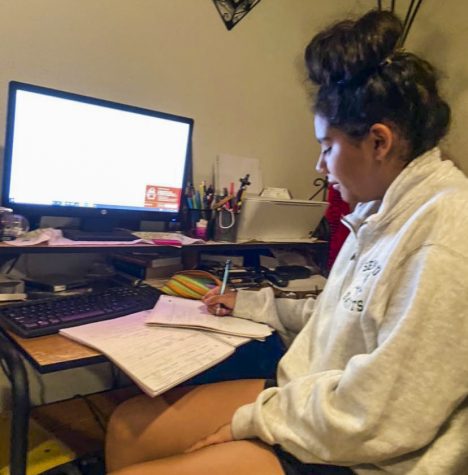
Juliet Nava, science major, is a sophomore planning to attend Kansas State University this fall. Nava said, “It’s been tough trying to do school online, but I just make a to-do list everyday.”
Gilmore and Horinek have goals that keep them motivated to graduate and transfer to a four-year college.
Graduating also motivates Rodriguez, but said her family is her main motivation. “The fact that I’d be the first in my family to graduate from postsecondary school, really motivates me. My parents sacrificed so much so I could be where I’m at today, and that would be very rewarding for them to see me become successful.”
Remembering how his education will help him in the future motivates Popa. “My education is an investment towards my future. The more I learn now, the better I’ll be able to help someone later. It’s important, and I try to keep that in mind.”
Some students believe the struggle they are experiencing with long distance learning will positively affect them in the long run.
“Long distance learning is making me more responsible. Going into college, people would tell me, ‘you will have to be accountable for yourself,’ and now that we’re not in a class setting where I was motivated by my instructors and peers, I really am being accountable for myself and keeping myself motivated,” Briones said.
Villalobos and Gilmore have both learned how to manage their time and to get done what needs to get done.
Long distance learning has taught Popa how to slow down and just be at peace. “When I slow down and I’m alone with myself and my thoughts, no distractions, just silence, I come out with a realigned focus.”
As a result of having school at home, Horinek has also improved his focus and patience and has learned how to cope with boredom.
The COVID-19 pandemic has caused lives to be turned upside down. However, Popa believes it gives people an opportunity to look at this situation from a different perspective.
“This is an opportunity to get closer to family, closer with yourself, and to get closer to God. To refocus on what’s important in life. To build stronger friendships through social media outlets. Have those deep conversations. Read those books you haven’t read. I can say confidently that if you see this time through the right lens, you’ll see all the opportunities and get to it.”
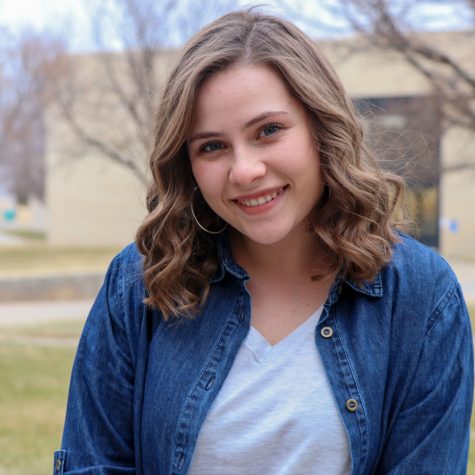
Rebecca Irby is a 19 year old Liberal local. She is a music major. After attending Seward, Rebecca plans on attending Fort...
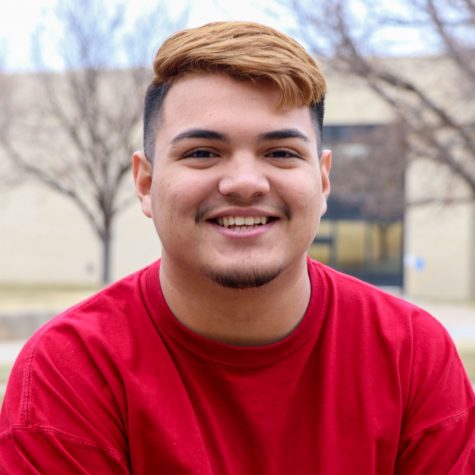
Elvis Polvon is an 18-year-old freshman majoring in journalism. Elvis is also a Liberal local who would love to work for...


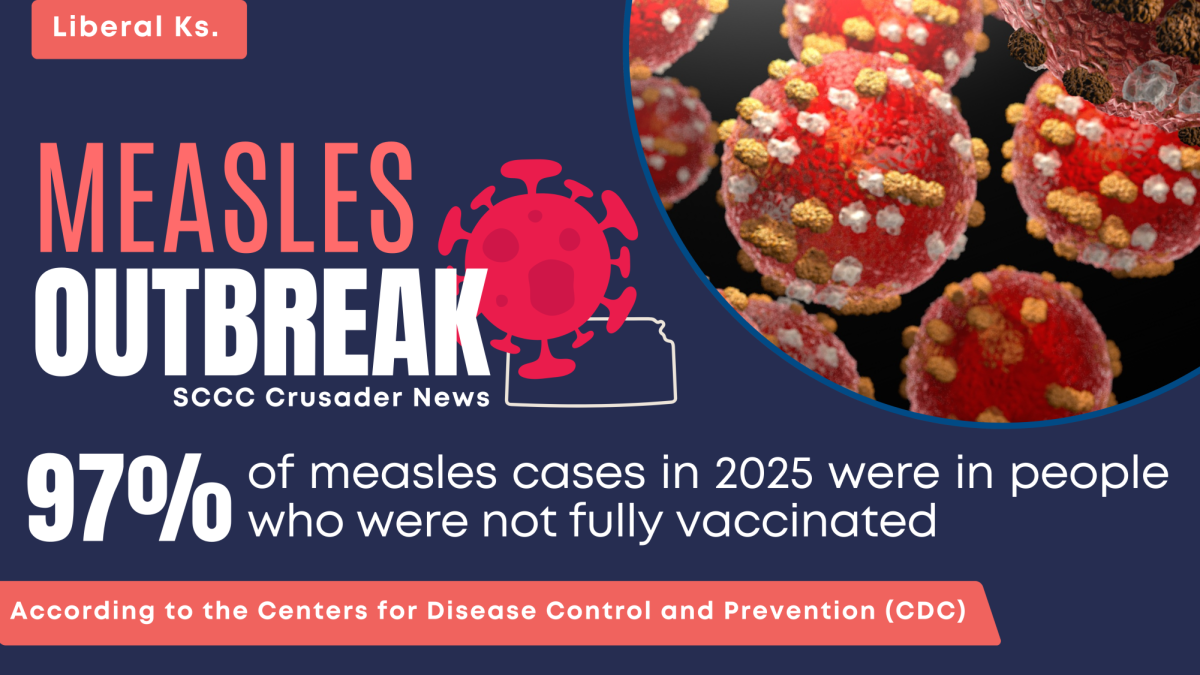
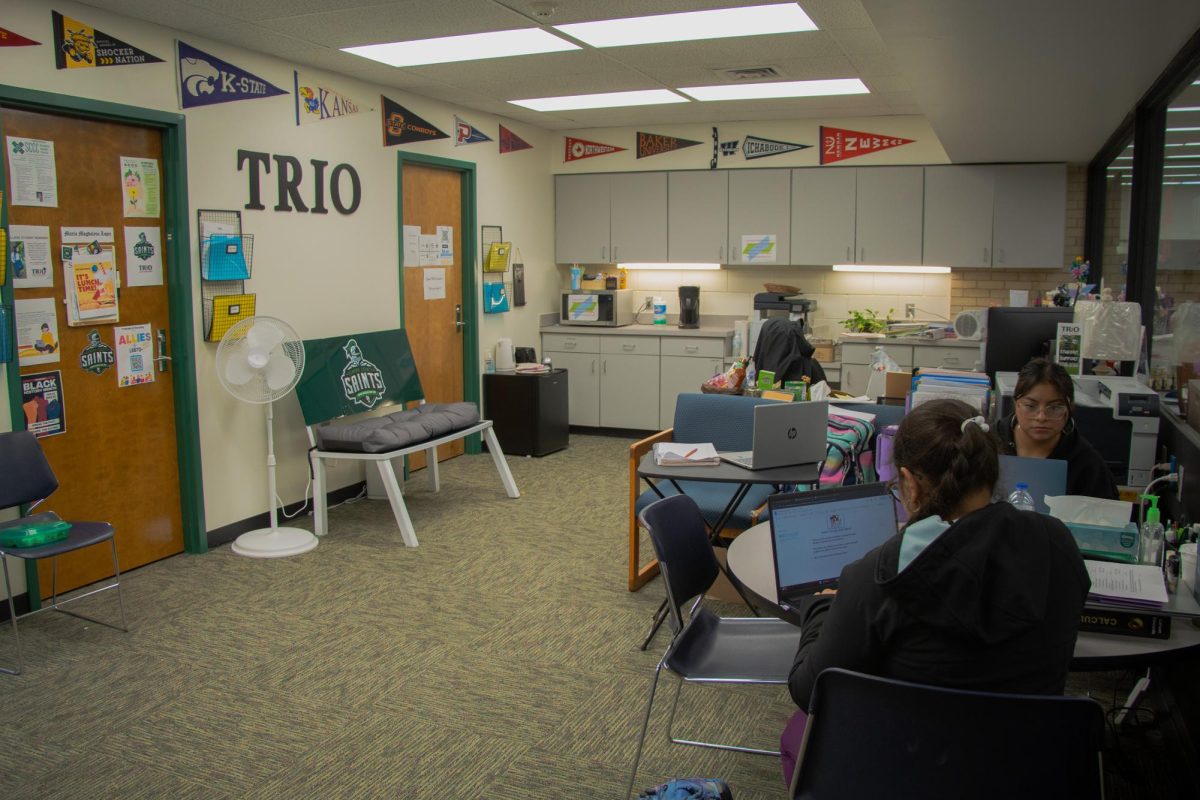










![The sophomores were recognized on the field instead of walking across the stage during their doubleheader. They received their diplomas and a picture of themselves playing during their career at Seward. [Pictured left to right are Dylan Day, Reed Thomas, Jase Schneider, Mason Martinez, Gannon Hardin, Brody Boisvert, and Zach Walker]](https://crusadernews.com/wp-content/uploads/2022/05/WEBDSC_0275-900x454.jpg)
